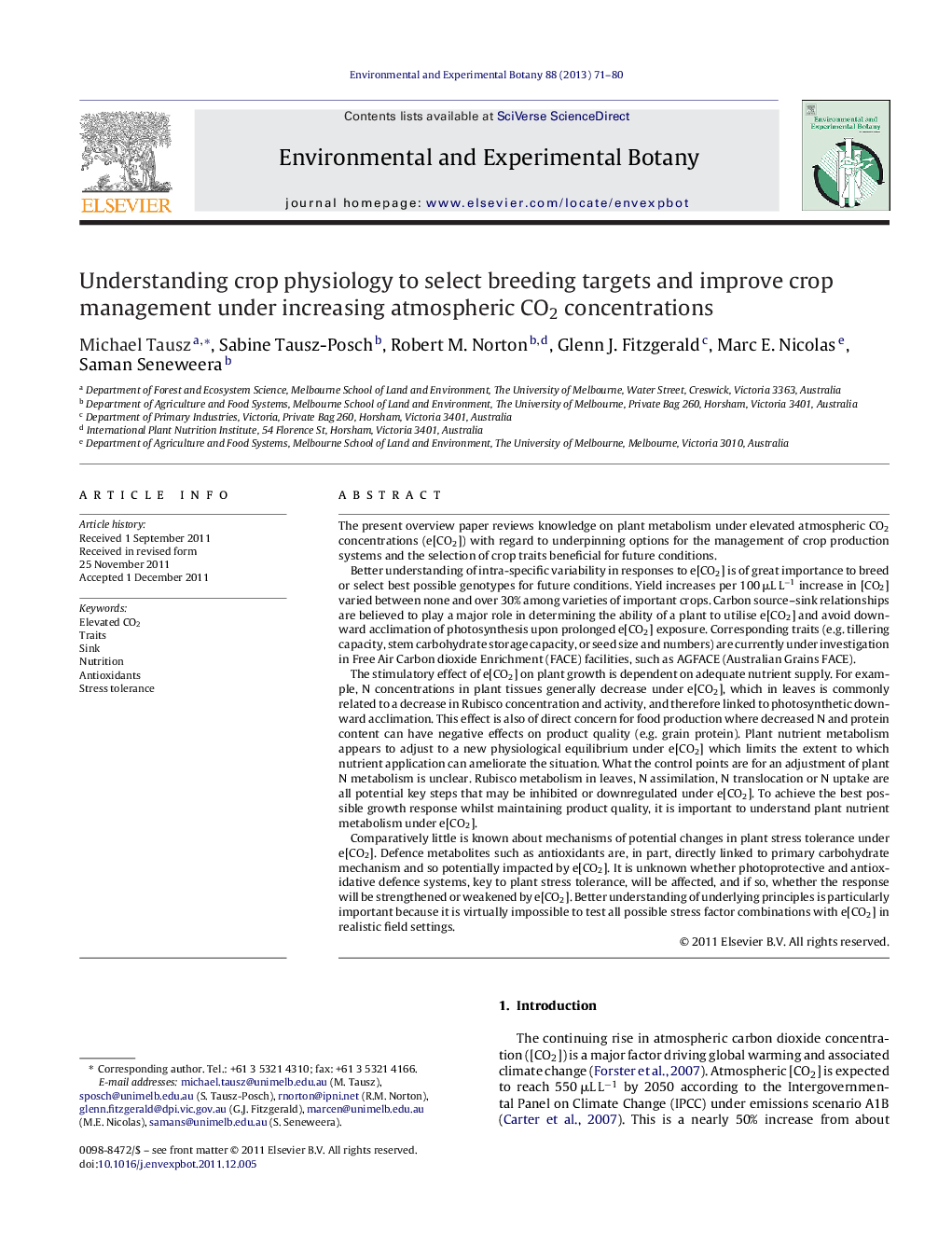| Article ID | Journal | Published Year | Pages | File Type |
|---|---|---|---|---|
| 6388984 | Environmental and Experimental Botany | 2013 | 10 Pages |
The present overview paper reviews knowledge on plant metabolism under elevated atmospheric CO2 concentrations (e[CO2]) with regard to underpinning options for the management of crop production systems and the selection of crop traits beneficial for future conditions.Better understanding of intra-specific variability in responses to e[CO2] is of great importance to breed or select best possible genotypes for future conditions. Yield increases per 100 μL Lâ1 increase in [CO2] varied between none and over 30% among varieties of important crops. Carbon source-sink relationships are believed to play a major role in determining the ability of a plant to utilise e[CO2] and avoid downward acclimation of photosynthesis upon prolonged e[CO2] exposure. Corresponding traits (e.g. tillering capacity, stem carbohydrate storage capacity, or seed size and numbers) are currently under investigation in Free Air Carbon dioxide Enrichment (FACE) facilities, such as AGFACE (Australian Grains FACE).The stimulatory effect of e[CO2] on plant growth is dependent on adequate nutrient supply. For example, N concentrations in plant tissues generally decrease under e[CO2], which in leaves is commonly related to a decrease in Rubisco concentration and activity, and therefore linked to photosynthetic downward acclimation. This effect is also of direct concern for food production where decreased N and protein content can have negative effects on product quality (e.g. grain protein). Plant nutrient metabolism appears to adjust to a new physiological equilibrium under e[CO2] which limits the extent to which nutrient application can ameliorate the situation. What the control points are for an adjustment of plant N metabolism is unclear. Rubisco metabolism in leaves, N assimilation, N translocation or N uptake are all potential key steps that may be inhibited or downregulated under e[CO2]. To achieve the best possible growth response whilst maintaining product quality, it is important to understand plant nutrient metabolism under e[CO2].Comparatively little is known about mechanisms of potential changes in plant stress tolerance under e[CO2]. Defence metabolites such as antioxidants are, in part, directly linked to primary carbohydrate mechanism and so potentially impacted by e[CO2]. It is unknown whether photoprotective and antioxidative defence systems, key to plant stress tolerance, will be affected, and if so, whether the response will be strengthened or weakened by e[CO2]. Better understanding of underlying principles is particularly important because it is virtually impossible to test all possible stress factor combinations with e[CO2] in realistic field settings.
⺠Maximum crop yield response to elevated CO2 is needed for food security. ⺠Source-sink relations may determine CO2 response and provide selection targets. ⺠Crop nutrition traits must ensure food quality under elevated CO2. ⺠Elevated CO2 effects on antioxidants may affect crop stress tolerance.
